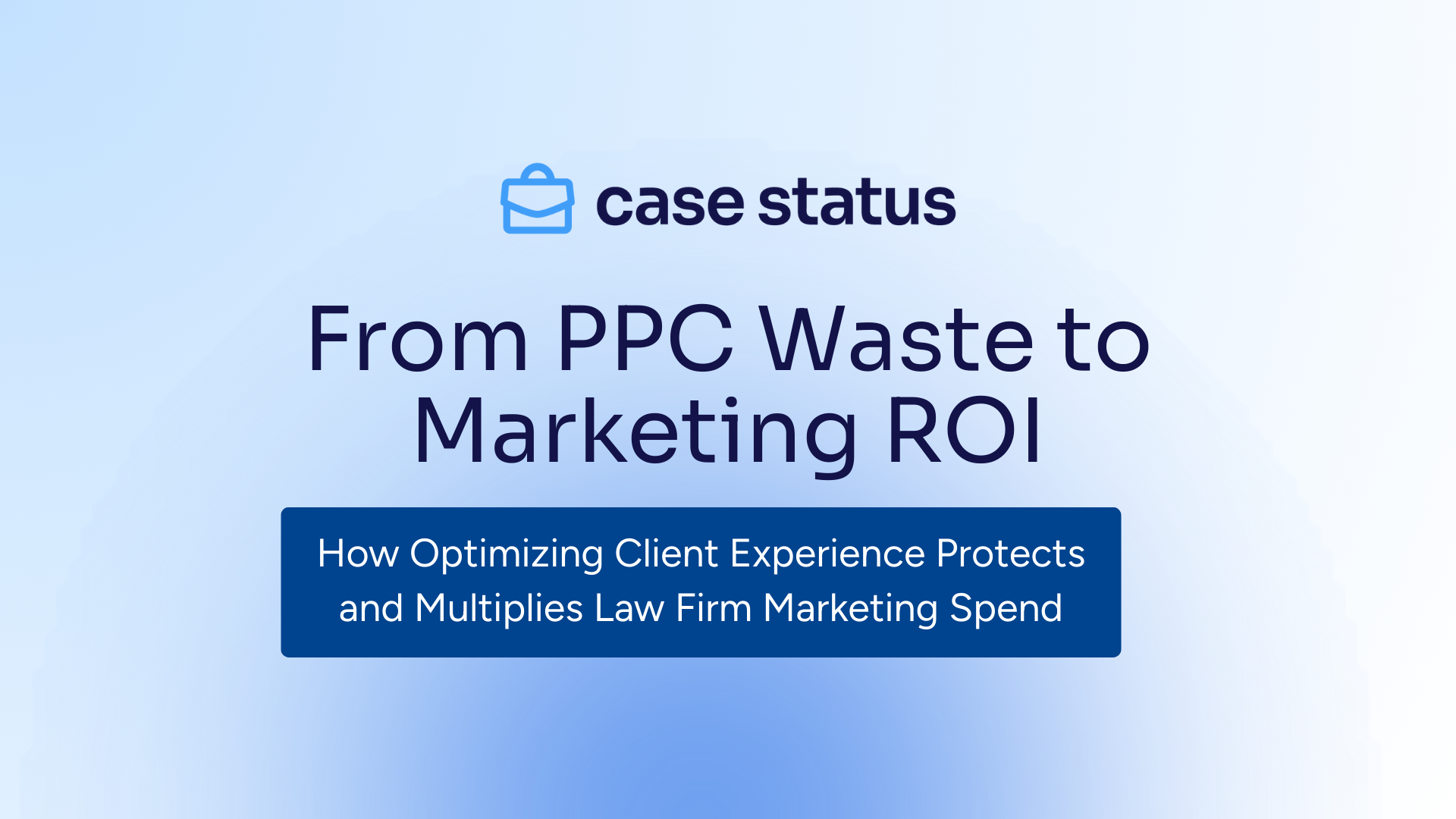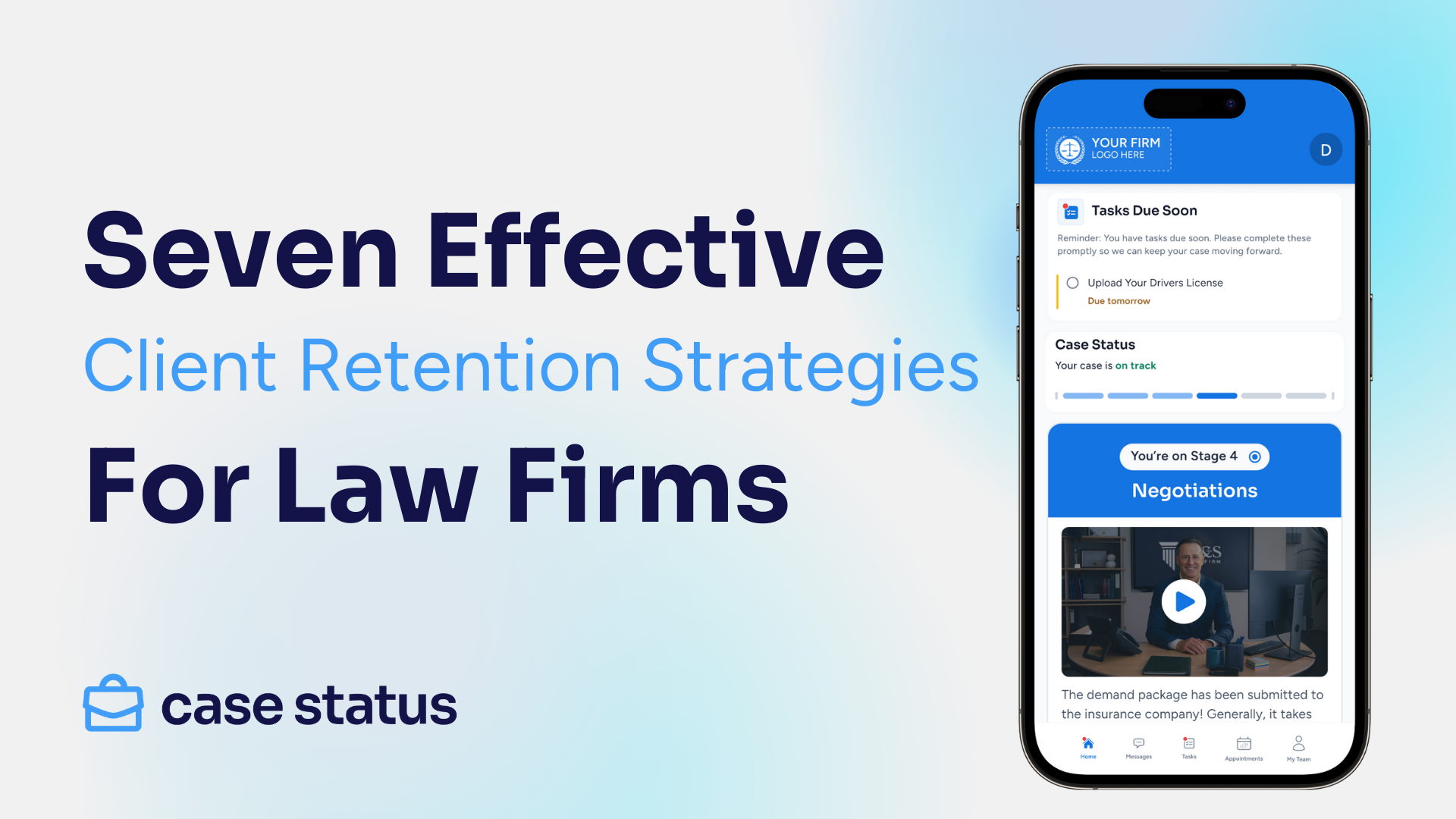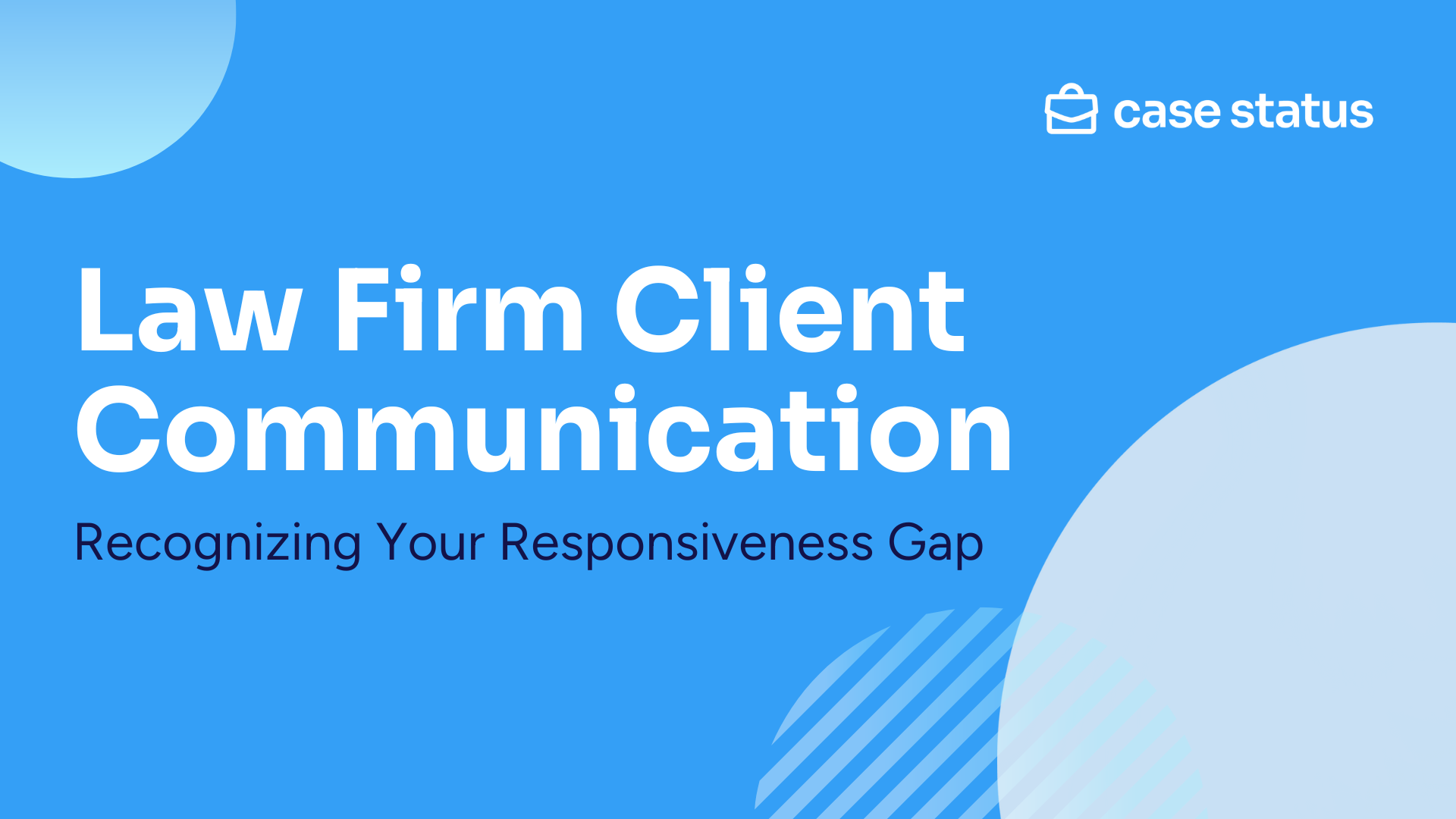
Potential Productivity Gains for Law firms enabled by AI in the Future
AI has been credited for a lot lately, like producing thousands of articles for popular news sites, causing mass layoffs, and shaking up the world of higher education thanks to generated essays. While the media tends to focus on controversies, the reality is that AI has innumerable positive implications (that’s what we like to focus on).
AI can’t replace lawyers, and it isn’t directly competing for their jobs or their clients. Instead, AI is driving the most revolutionary changes in the legal industry since the internet, email, and customer relationship management (CRM) software.
We want to dig deeper behind the reasons why we support AI in the workplace by exploring several areas artificial intelligence can improve lawyers’ work flows.
Research and Review
The research process is lengthy, and it often leads to many clients repeatedly questioning their attorney. “Have you made any progress?,” “Are there any updates you can share with me?,” “What’s taking so long to review my case?”
These questions come from an understandable position of concern and anxiety, but they ultimately slow a lawyer’s job down even more. AI can be integrated into your operations to make one of the most time-consuming parts of your job faster.
A recent technology review by MIT reports that GPT-4, the latest iteration of ChatGPT AI technology, recently passed the Universal Bar Exam. With the ability to rapidly acquire, synthesize, and disseminate terabytes of complex legal information, AI is the most powerful and sophisticated legal research tool to ever exist.
And it’s just getting started.
In addition to facilitating research, AI can also help lawyers review documents more easily. It can easily draw important details out of physical documents and organize them into an effective presentation. This drastically reduces the amount of time attorneys spend gathering details, and it allows them to focus on performing legal tasks more than preliminary research.

Case Prep
AI can be helpful drafting legal documents, such as contracts, letters, and notices, to help your practice operate more efficiently. These templates can easily be modified by inputting a client’s information and modifying any relevant details. With a real lawyer reviewing them for clarity and accuracy, the time it takes to produce a single document for a case can be cut down by hours.
Your case prep has a large impact on your ability to deliver the results your clients are looking for. Without an AI by your side, it is all too easy for competition to start overtaking the market, producing faster results, and delivering greater turn-arounds that take business away from your practice.
Case prep AI is not only optimized for document writing. It can also help manage the end-to-end client relationships, assisting with both client intake and information gathering to follow-ups and information requests.
The efficiency improvements with AI will ultimately help practices prepare for a technology-driven future. While we may already be living virtually inseparable from smartphones and software, the legal sector has traditionally lagged behind trends. This has resulted in an extremely imbalanced industry with some practices enhanced with AI and legal software and others lagging behind as they struggle to modernize while weighed down by manual tasks.
One of the greatest advantages of legal AI is its ability to streamline your workflows without disrupting your current operations. During the discovery process, artificial intelligence can help law firms extract and organize the most important information related to their cases. In turn, they can apply their legal expertise more effectively.
The AI does not replace the lawyer’s job, but it does make it easier. With the help of this technology, they can draft multi-page documents in seconds, organize information, and insert data throughout text with a few keystrokes.
Contract Analysis
The contract review process is laborious to say the least. With an AI implemented into your practice, you can manage, review, and revise contracts much easier, often saving hours upon hours per document.
A legal AI designed for contract management can be modified with specific parameters; the lawyer then uploads a document, and the AI will quickly scan it and flag any clauses that do not meet the requirements.
The ability to quickly identify any clauses, missing legal terminology, and potential risks can make contract analysis more efficient. As a result, practices can produce faster turnarounds for their clients that lead to higher satisfaction rates.
On a more technical note, greater contract analysis can also reduce the margin of error, reduce the need for future revisions, and help lower the risk of legal breaches across the board.
In corporate law, attorneys who leverage AI for contract management are able to drive results much faster than their counterparts who do not use it. In turn, they can market themselves as a much greater asset to potential clients and utilize their efficiency to secure long-term relationships with businesses.
Compliance Review
Compliance review requires in-depth evaluation, but law firms often find themselves pressed for time amid growing case loads and client demand. The integration of legal AI software can ensure that your practice always operates 100% in line with legal frameworks and even industry-specific compliance regulations.
Today’s GPT-powered AI’s evolve rapidly and learn information at lightning speed. They are able to easily modify their own ability to determine which guidelines are current, which are outdated, and which items should be flagged for review by a lawyer.
The AI can also be trained to continuously review compliance documents and notify the appropriate parties when there are missing elements, non-compliant data, or other potential uses. Ultimately, this can eliminate the need for the law firm to dedicate hours to writing or reviewing compliance documents without jeopardizing its operations.
Virtual Assistance
The paralegal and legal secretary add a human touch to the workplace that cannot be replaced by an AI. They also offer critical thinking, analytical abilities, and research skills that are necessary to ensure the results of AI-driven work are indeed accurate.
However, the front-facing tasks of law firm management may not always be easy for firms to balance on top of their work. What’s more, there are limitations to human-provided customer service that an AI overcomes.
The most notable advantage of a legal AI virtual assistant is its omnipresence. This AI can speak to 12 different clients simultaneously without missing a beat. Furthermore, it operates 24-hours a day, seven days a week, 365 days a year. There is never a day off for a virtual assistant powered by AI, and you do not have to pay extra for it to work overtime.
Legal AI assistants come in the form of chatbots that are integrated into your website, but they can also provide SMS and email support as well. These language-based models are designed to speak in natural-sounding, friendly language to clients and answer common questions they have about your firm’s services.
Even more beneficial, virtual assistant AIs can be valuable marketing tools, guiding potential leads and collecting their contact information and logging it into your firm’s CRM, or forwarding it to the appropriate party.
Modern legal consumers are more powerful than those in previous generations. Today, they can research a breadth of legal questions online and get answers in seconds from industry-leading firms that are already leveraging the power of AI virtual assistants in their practice.
In order to stay relevant and drive a competitive edge, law firms must take proactive measures now to ensure they’re always available when potential clients need to speak with them. Even though they may not be connecting with a real human being from the start, the personable touch of a responsive AI assistant leaves a strong first impression that you can build upon.
Current clients can also benefit from the AI assistant. Whenever they have questions or concerns, they can reach out to the AI and be directed to the appropriate resources.
For law firms that want to improve their client intake process without taking more time away from work, virtual assistants are the answer. AI can personally guide each prospective client through a customized intake questionnaire, collecting relevant details and instantly creating a new account within your client portal. In turn, you spend less time gathering information and more time developing a winning legal strategy for your client.
Recommended Responses
AI legal services are changing the way people seek representation, and they’re revolutionizing the way lawyers work. While marketing and reputation used to be the greatest differentiators between law firm success, AI is now creating an even wider gap between law firms.
Those that have embraced the technology are already producing work much faster and more effectively than their competition. A law firm that has yet to even consider a client portal and prefers to do everything by hand is simply unable to match the level of customer service and support of their peers.
The most recommended response for any lawyer contemplating artificial intelligence is to explore it as a tool, not an alternative to work. While AI is evolving at an unprecedented and, frankly, miraculous, speed, it is not capable of performing any legal work without assistance.
The purpose of legal AI is not to replace lawyers but rather make their jobs easier. AI can streamline a law firm’s workflows so attorneys spend less time on administrative duties and more time serving their clients, forging airtight arguments, and delivering results.
AI legal assistants are at your service, ready to prepare memos, conduct research, answer questions, and analyze documents whenever you need them to. They can search databases in seconds, pull up relevant cases with one click, and revise complex legal contracts without skipping a beat.
By helping lawyers discover sources, enhance their documents, and research faster, AI ultimately leads to faster preparation, greater deposition, and better results for clients.
Where should a law firm start with AI?
The question depends on which tasks you want to begin improving first. Many legal AI software have been designed to perform multiple functions in one easy-to-use package.
By recognizing your law firm’s specific needs, you can identify the right AI software that will have the greatest impact on your work and clients. Lawyers that want to reduce the amount of time they spend with intake or document requests can invest in a client portal, which allows them to easily communicate with clients and gather important information through in-app messaging, email, and even SMS.
At Case Status, we’re using AI for the greater good of our clients (and theirs). For example, we’ve already built in real-time translation with Google’s Neural Machine Translation to support over 138 languages and allow firms that work with a greater variety of clients who may not speak English well or who prefer to communicate in another language.
Our goal is to use AI as tool that helps our product work better and deliver even more value to our clients. As GPT-4 continues to evolve, we plan to grow with it and help law firms do the same.
Subscribe to our blog for more posts about AI, legal tech trends, and tips for building a successful firm.



